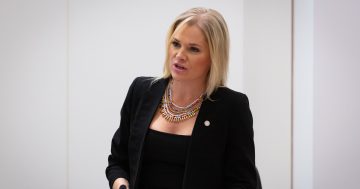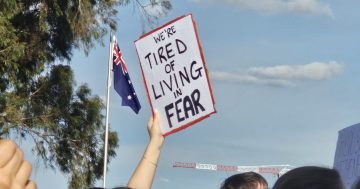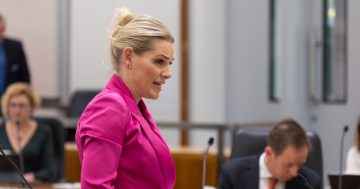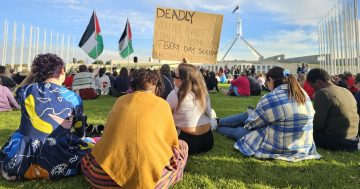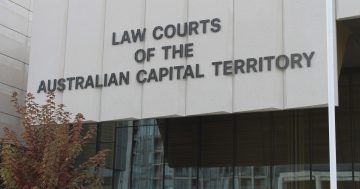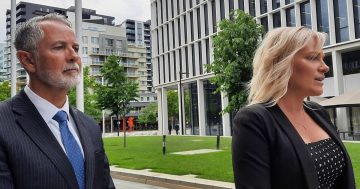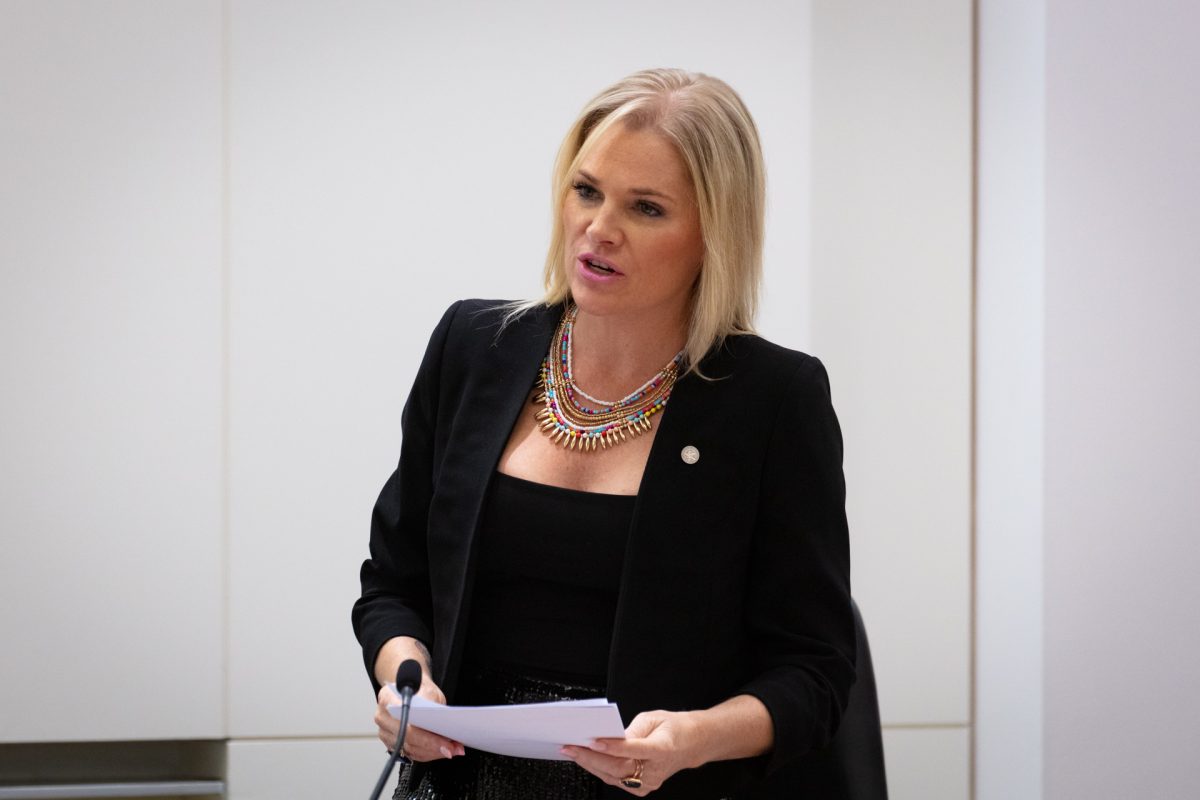
Canberra Liberals Leanne Castley says lives are at stake and the Legislative Assembly needed to act now to criminalise coercive control. Photo: Thomas Lucraft.
A person would face up to seven years in jail for coercive control against a partner or former partner under a private member’s bill to criminalise the behaviour.
Deputy Leader of the Opposition and Shadow Minister for the Prevention of Domestic and Family Violence Leanne Castley has released the exposure draft of her private member’s bill that details what forms of abusive conduct would constitute coercive control.
Ms Castley said that with 99 per cent of intimate partner homicides preceded by coercive control, it was crucial that the Legislative Assembly acted now to criminalise it.
She said the exposure draft outlined a standalone coercive control offence that includes the forms of abusive conduct in the NSW and Queensland legislation, and the ACT Domestic and Family Violence Risk Assessment Framework.
According to the draft, abusive conduct means actual or threatened conduct against a person and lists more than two dozen forms it could take, such as physical violence or abuse; coercion to engage in sexual activity; reproductive coercion; economic abuse; verbal abuse; stalking and harassment; isolating the person from their family or friends; and unreasonably controlling or regulating their activities.
It refers to repeated conduct that occurs over a period of time but is not necessarily continuous.
An offence is committed if the conduct is intended to coerce or control the partner or former partner in a way that a reasonable person would consider would likely to result in fear of violence or have a serious adverse effect on the capacity of the partner or former partner to engage in some or all of their ordinary day-to-day activities.
Shadow Attorney-General Peter Cain said the ACT was falling behind other jurisdictions in addressing coercive control.
“Five out of eight Australian states and territories have either legislated or committed to legislating a standalone criminal offence for coercive control,” he said.
“This bill will protect victim-survivors.”
Mr Cain said that, at present, police must wait for an instance of assault or homicide to occur before they can charge a perpetrator of abuse.
It would also ensure that convictions of coercive control affect applications for bail and working with vulnerable people checks.
The exposure draft outlines a 12-month commencement date for this bill, which the Canberra Liberals believe left ample time for developing and introducing an education campaign on coercive control.
The Canberra Liberals say that an adequately resourced education campaign must come first to ensure that the community, frontline services and the legal system understand coercive control and that it will be a criminal offence.
Ms Castley attacked Prevention of Domestic and Family Violence Minister Yvette Berry’s “go slow” approach.
“It is no surprise that the community is angry at this government’s lack of action when it comes to preventing domestic and family violence,” she said.
The ACT Government provided in-principle support to criminalise coercive control in 2021 but there has been little public-facing legislative action since then.
When questioned earlier this month about what the ACT Government had been doing in this space since 2021, Ms Berry said she had been “listening very carefully” to what local experts were saying before taking action.
“What I’m hearing from the sector is [that] the education should come first – a clear understanding in our community and frontline responders,” she said.
“The experts have told me they want to see and develop … education and supports around what is coercive control and its impacts on domestic, family and sexual violence. It is a complex issue and we want to make sure we get it right so that when legislation is introduced it doesn’t impact on people negatively.”
Ms Berry said the government also wanted to see how the laws played out in NSW to make sure legislation introduced in the ACT was appropriate and didn’t include any aspects that could have negative consequences.
She denied the government was dragging its feet, saying it was taking a careful and considerate approach to ensure the legislation was right.
Ms Castley has distributed the exposure draft for community consultation to stakeholders and frontline services.
Anyone impacted by sexual, domestic or family violence can contact 1800RESPECT on 1800 737 732 or Full Stop Australia on 1800 385 578.
Local support services include the Canberra Rape Crisis Centre on 6247 2525, the Domestic Violence Crisis Service (DVCS) on 6280 0900, and Victim Support ACT on 1800 822 272 or 6205 2022.
If this reporting has raised mental health concerns for you, call Lifeline on 13 11 14.












